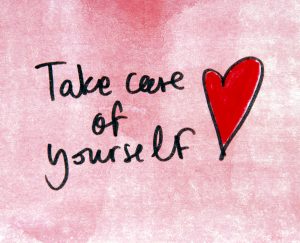I am guessing that many of you will expect this post seemingly about health insurance will be centred on the demise of the NHS or the differences between public and private medical care…..but it is not.
Like many people with a lifelong health condition, I can’t get health insurance even if I wanted to. Insurance companies tend to view me as ‘a risk’, and either they won’t offer me a policy at all, or it is prohibitively expensive.
I don’t feel slighted in the least, as I very much doubt I would choose to invest in health insurance even if I was able to do so.
I love the NHS
I am fortunate to live under the amazing umbrella of the UK National Health Service (NHS) where I view the treatment I have received as a privilege and not a right. Having lived overseas in America, I have also spent time with people living with long-term health conditions who struggled to get the necessary health coverage, and even if they did, were financially penalised with huge co-payments.
Can those of you in the UK start to imagine what it is like to feel unwell, but to have to judge whether you can afford to go to the hospital, visit your doctor, accept a prescription or get a vital test?
I will acknowledge the shortcomings of the NHS when it comes to waiting times, bed blocking, cancelled operations and non-emergent care, but realistically when your life is in danger, all hands swing into action without questions being asked.
It pays to remember how bloomin lucky we are, when an alarming percentage of the worlds population do not have access to healthcare at all.
But this is not a post to extoll the virtues of the NHS.
You see, whether you have health insurance and access to quality medical care or not, there is so much which we can do as individuals to keep ourselves healthy.
The growing obesity epidemic is indicative of the fact that far too many people just don’t prioritise looking after their health. Add that to our increasingly sedentary behaviour, and we have a recipe for disaster.

According to a recent study by the OECD (Organisation for Economic Co-operation and Development), the UK has the highest level of obesity in western Europe, with rates rising higher than any other developing nation. Almost 30% of the population classified as obese, and 63% are overweight!
“Obesity means higher risk of chronic illnesses, particularly hypertension (high blood pressure), cholesterol, diabetes and cardiovascular diseases,” the report said.
When it comes to staying healthy, the three worst things you can do are smoke, be inactive or become obese.
With the increasing strain on the NHS, it is evident that as a population we all need to take more responsibility for looking after ourselves before it is too late.
Health insurance doesn’t prevent problems occuring, it just provides a (perhaps) quicker solution.
Money can buy an awful lot, but it can’t bring back your health when it is lost.
Healthcare may be able to save your life, but it can’t always fix the damage which has been done. Even if you already have a chronic health condition, it certainly pays not to collect any more!
A report by the Lifestyle Statistics, Health and Social Care Information Centre said that Physical inactivity costs the NHS £0.9 – 1.0 billion annually, overweight and obesity costs £5.1 – 5.2 billion, smoking costs £2.3 – 3.3 billion and alcohol intake £3.5 billion. It doesn’t take a genius to see those amounts are unsustainable in our society.
There are two problems with assuming that education alone will avert the developing crisis. Firstly, far too many people have an heir of invincibility, and wrongly believe that ‘it won’t happen to me’. All I can say is that it can, and it does. Life becomes increasingly more challenging when you are living with one or more long-term health conditions, and it is far easier to prevent a problem before it occurs than deal with the consequences afterwards.
Secondly, even if the worst does happen, you might conclude that the NHS will do whatever is necessary, patch you up, and life will go on as before. Again, this is often a fallacy. Poor health can affect every area of life, and have implications on how and where you live, your finances, your friends and family, your opportunities, and perhaps most significant of all, your quality (and quantity) of life.
40% of people aged over 65 have at least one limiting long term illness.
I have always seen it as my responsibility to do whatever I can to take care of my own health. The NHS has willingly invested a fortune in keeping me alive despite my congenital heart issues and the related problems which have occurred since, so I don’t want to knowingly increase the burden on myself or them.
I am far from perfect and acknowledge that I could still improve my eating and exercise habits, which tend to be rather all or nothing, but I am at least mindful about the areas where I am letting myself down and could do better. I am not expecting anyone else to fix my life but me.
One of my biggest worries is that I further complicate my medical history with the addition of a lifestyle-related illness which I could have prevented.
My health insurance is to eat and drink sensibly, exercise regularly, control my stress levels, sleep 8+ hours per night, and to try and optimise as many of my health markers as I can. It isn’t always fun, but I see it as perhaps the best investment I can make towards my future.
Money in the bank won’t count for much if I am not able to enjoy it!
We can all come up with excuses (lack of time, energy, ability, knowledge, opportunity etc) about why we don’t do what we know to be the right thing when it comes to maintaining a healthy lifestyle. The media blasts us with advice every day, and the general principals haven’t changed much in 50+ years.
But acknowledging our failings does not automatically lead to doing something about them. We all have to start somewhere.
Even small improvements are generally better than nothing.
I look every day at my clients and have so much admiration for the commitment which they make. Around 80% have had their life changed by heart disease, cancer, COPD or stroke, and yet they still recognise the value in regular physical activity for maintaining their quality of life.
It truly doesn’t matter if what happened to them is congenital, acquired later in life, related to poor lifestyle choices or just bad luck; the reality is that they are being proactive and doing their best to look after what remains, rather than using excuses to slide further into the hole.
I want you all to think carefully about what your health means to you, and to decide whether there is room for improvement. I would bet that there is.
It is not a question of berating yourself for past mistakes, but coming up with realistic and sustainable plan which you can begin right now.
Don’t wait for the doctor to tell you that you are pre-diabetic or that you need heart bypass surgery before you make a change.
I know that you can do all the right things and still get struck down by life-threatening illness, but the risk undoubtedly reduces if we are proactive in our approach. More importantly, even if the worst should happen, the chances of recovery are higher if you are fit and healthy to begin with.
I am an absolute believer that we don’t have to be perfect, and that even small improvements can build on each other to bring about a noticeable change.
Can you :-
Eat a piece of fruit instead of a biscuit?
Walk to the local shops instead of drive?
Take the stairs rather than the lift at work?
Go to bed ½ hour earlier?
Join a local walking club so you can walk and talk?
Download one healthy recipe each week and try it out?
Formulate a fitness challenge?
Increase your fluid intake to the suggested minimum 1.2 litres/day?
Investigate sources of local weight loss support?
Apathy is a killer and good ideas mean nothing if we don’t take some action.
How many times have you said to yourself that you are going to get fitter or eat healthier, and then made a 50% effort before sliding back to the damaging habits you had before?
I’m not writing this just to make you feel bad, as in doing so I shine the light on my own priorities and decisions as well. I am certain that I can make better choices with my nutrition and exercise than I am right now. Admittedly my standards are high, but I still find myself being rather complacent about what I am achieving.
Could I still improve?
100% yes!
So here is my monthly challenge to all of you. Write down just three small positive changes in your daily life which you think will improve your health if you sustain those habits. They could be exercise, diet or lifestyle related….or perhaps one of each.
Remember, there is no need to be massively ambitious, or set yourself goals which involve giving things up rather than building a new habit – it is always better to add a related positive habit before you try to take away a negative one.
Write those goals down and track your progress every day. I have a series of 7 healthy habits which I grade in my journal every evening on a scale of 1-5. I am able to look back and see if I getting better or worse, how those habits often inter-relate, and identify positive strategies which I can use to improve any area where I am slipping. It works for me and it might for you.
Looking after myself as well as I can is my own form of health insurance. No amount of money will save me if I don’t invest in myself!






